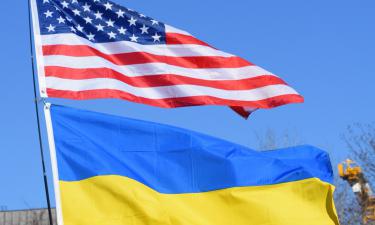Firm promises but few pledges of funding at key summit on digital divide
A crucial summit on expanding Internet access around the world ended with a firm promise to narrow the digital divide _ but little in government funding to make it happen.
The World Summit on the Information Society originally was conceived to raise consciousness about the divide between the haves and have-nots, and to raise money for projects to link up the global village, particularly Africa and Asia and South America.
Instead, it was overshadowed by a lingering resentment about who should oversee the domain names and technical issues that allow people from Pakistan to Peru surf Web sites for information, news and consumer goods.
Negotiators from more than 100 countries had agreed on the eve of the meeting to leave the United States in charge of the Internet's addressing system, averting a U.S.-EU showdown at this week's U.N. technology summit. But resentment over perceived U.S. control persisted, and participants left with few concrete pledges of financial help.
"They have promised and promised and promised, and it's not the first time that they have promised this," said Diallo Mohamadou, a telecommunications consultant from Senegal. "In 2000, they promised to connect all the small villages far away from the big cities in Africa to the Internet. Five years later and nothing has happened."
Participants said more than 200 new initiatives were unveiled at the summit, but no exact dollar amount, said T. Kelly, head of the strategy and policy unit for the Geneva-based ITU.
"We currently have over 200 entries in the golden book and many of them are multimillion dollar," he told reporters.
Some of the initiatives announced at the summit, which ended Friday, include programs to set up centers to teach information technology with the idea of having them, in turn, teach it to more students, in a bid increase countries' homegrown talent; a low-cost mobile phone to expand the number of cell phone users worldwide; and a US$100 (Ђ85) laptop announced by Nicholas Negroponte of the MIT Media Lab, which aims to ship 1 million units by the end of next year and sold to governments at cost for distribution to school children and teachers.
Richard D. McCormick, former chairman of the International Chamber of Commerce, said private industry must work in concert with governments to narrow the divide, adding: "Now the real work begins."
"Now it's up to governments, business, interest groups and the scientific and technical communities to take this freedom and opportunity to improve the lives of every person on this planet," he said. "If we can do that, there will be no losers _ everybody wins."
Yoshio Utsumi, secretary-general of the International Telecommunication Union, which helped oversee the summit, urged participants to follow through on agreements made this week.
"It is not the end, just the beginning, but the homework is enormous," Utsumi said. "The summit itself ended, but many, many meetings, action and partnership programs must start."
Despite the pledges to expand access and lower costs, some warned that it would take not just commitments of money, but time and resources.
"People can see the light at the end of the tunnel but they have to find the ways to keep going," said Marshall Smith, program director for the William and Flora Hewlett Foundation, which makes educational materials for students and teachers in Africa and elsewhere available free of charge.
Another thread of concern was keeping the Internet a forum for free speech and dissent.
"It is vital that the Internet remain a neutral medium open to all in order to realize that access for our citizens," John Marburger, director of the U.S. Office of Science and Technology Policy, said in a not-so-subtle swipe at Tunisian President Zine El Abidine Ben Ali.
Tunisia's selection as the host of the summit has raised eyebrows. On Thursday, the head of Reporters Without Borders was ordered out of the country after arriving at the airport. Earlier this week, human rights groups said Tunisian and foreign reporters had been harassed and beaten.
"It is the role of governments to ensure that this freedom of expression is available to its citizens and not to stand in the way of people seeking to send and receive information across the Internet," Marburger said, AP reported. V.A.
Subscribe to Pravda.Ru Telegram channel, Facebook, RSS!




